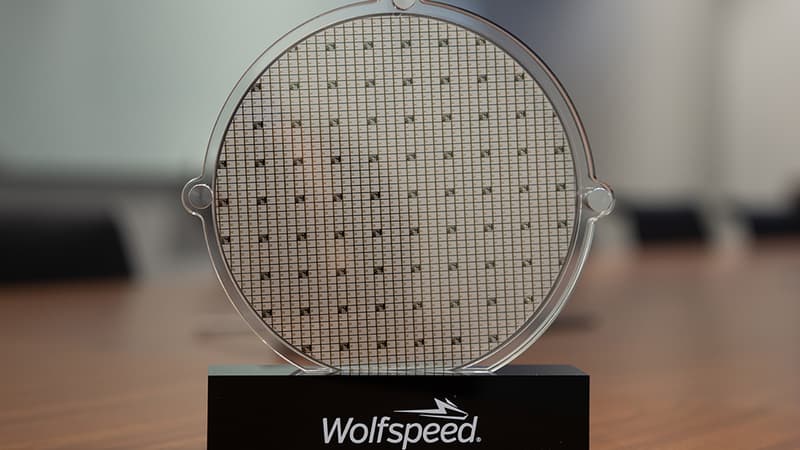US chipmaker Wolfspeed announced on Wednesday an estimated investment of several billion euros to build a silicon carbide semiconductor factory in western Germany as Europe tries to catch up with China and the United States.
The 200mm wafer semiconductor factory “will be the world’s largest (…) to produce next-generation silicon carbide devices” to be used in particular in electric cars, according to a group press release.
The German automotive industry, a mainstay of Europe’s leading economy, is in dire need of these essential electronic components to make a successful transition to fully electric and then autonomous driving. Wolfspeed is expected to invest around 2 billion euros in this project, hoping to receive 500 million euros in public subsidies, according to statements from his boss Gregg Lowe to the Handelsblatt newspaper on Wednesday.
“important sign”
This is “an important sign that Germany remains attractive as a high-tech location,” Economy Minister Robert Habeck said in Berlin. The EU is looking to become a major player in microchip manufacturing dominated by Asian producers. Last year, Brussels announced a €43 billion plan aimed at capturing 20% of the global semiconductor market by 2030, in particular by granting aid to investors.
Wolfspeed’s investment should also be part of an Important Project of Common European Interest (IPCEI). Germany is already a stronghold of semiconductor production in Europe, with Bosch group sites and recently announced factory projects by US-based Intel and German-based Infineon.
The announcement also comes at a time when Brussels wants to respond to the massive aid provided by the American Inflation Reduction Act (IRA) for companies established in the United States in the electric vehicle or renewable energy sector, that seriously worry the competitiveness of the European industrial fabric. Compared to the silicon chips used up to now, silicon carbide semiconductors provide greater power to electric motors, opening up huge opportunities in the automotive sector.
$6.5 billion master plan
The German automotive supplier ZF for its part announced on Wednesday an investment of “hundreds of millions” of euros in the Wolfspeed project. For the American group, the announcement of this European factory project represents “an important part” of a larger plan of 6,500 million dollars to inflate its production capacities, with other projects completed or underway in the North American states of North Carolina. and New York.
The global industry is suffering from a shortage of these precious electronic components whose demand exceeds supply, a shortage that is further exacerbated by logistics disruptions related to Covid-19. Persistent semiconductor shortages could lead to a 20% decline in car production by 2026 if no action is taken, German automotive lobby group VDA recently warned.
Source: BFM TV


